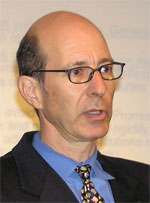In her book The March of Folly: From Troy to Vietnam, the historian Barbara Tuchman explores the perplexing question of why countries sometimes pursue policies that are fundamentally contrary to their own interests. That question has acquired renewed relevance as Europe has now enlisted in a deepening march of folly over Ukraine. Failure to reject […]
Read More »Germany’s election & why it is important to understand the Ukraine War
I urge you to watch this YouTube mini documentary (30 minutes). If that is too long, watch just the segment from 10:30 -12:00 (1.30 minutes). Jeffrey D. Sachs – Understanding the Ukraine conflict – Brave New Europe Every German should watch this before voting in the February election (and every European should watch in advance […]
Read More »The Ukraine – Russia war explained: how the US exploited internal fractures in the post-Soviet order (plus lessons for Georgia)
This paper explores the deep causes of the Ukraine – Russia war. It argues that the war has both internal and external causes. The internal causes are rooted in the way the Soviet Union disintegrated. The external causes relate to how the US exploited the fractures in the post-Soviet order to advance its Neoconservative agenda […]
Read More »Causes of the Ukraine War & the case for Georgian non-alignment — An interview I gave in Tbilisi, Georgia
Watch the interview here
Read More »We still ask if 80 years ago they (ordinary Germans) knew?
Watch this and ask yourself if you know: “Gaza”: an Al Jazeera Investigative Unit documentary
Read More »Varieties of capitalism and societal happiness: theory and empirics
This paper investigates the impact of different varieties of capitalism (VoC) on societal happiness. It begins with a critique of Neoclassical welfare economics which emphasizes Pareto optimality, and it argues for focusing on reported societal happiness. The paper identifies five VoC. Using a sample of twenty-six high-income countries drawn from the 2020 World Happiness Report, […]
Read More »Neoliberalism and the Drift to Proto-Fascism: Political and Economic Causes of the Crisis of Liberal Democracy
Neoliberalism is a political economic philosophy consisting of two claims, one economic and the other political. The economic claim is laissez-faire is the best way to organize economic activity as it generates efficient outcomes that maximize well-being. The political claim is free markets promote individual liberty. This article argues both claims are problematic. The evidence […]
Read More »Ukraine’s Hiroshima moment is drawing closer (the consequences of Neocon madness)
In August 1945, the US atom bombed the Japanese cities of Hiroshima and Nagasaki. Since then, nuclear weapons have never been used in conflict. That may soon change as Ukraine faces the increasing likelihood of a Hiroshima moment. Conditions in Ukraine increasingly give Russia military and geopolitical cause to use tactical nuclear weapons. Though Russia […]
Read More »Paul Davidson (1930-2024) and the founding of Post Keynesian economics
Paul Davidson was a critical figure in the preservation of John Maynard Keynes’s ideas, sticking with them when they were out of fashion. He was also key to the survival of the Post Keynesian school. Davidson endorsed Keynes’s liquidity preference theory of interest, and he emphasized fundamental uncertainty as a central feature of economic reality, […]
Read More »The military-industrial complex as a variety of capitalism and threat to democracy: rethinking the political economy of guns versus butter
This paper examines the military-industrial complex (MIC), which is a prototype widely imitated by other business sectors. Collectively, they constitute a variety of capitalism which can be termed the poly-industrial complex (PIC). Understanding the MIC is critical to understanding contemporary US capitalism, US international policy, and the drift toward Cold War II. The MIC exerts […]
Read More » Thomas Palley: Economics for Democratic and Open Societies
Thomas Palley: Economics for Democratic and Open Societies
